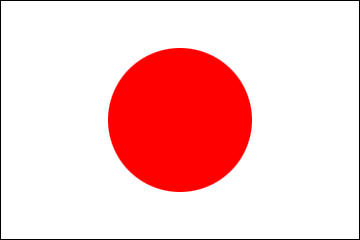Through the Eyes of the former Consul General Yamada (June, 2017 - July, 2020)
2020/3/27

The Vancouver in Washington State
If you search for “Vancouver” on Google, the first result would be a city in British Columbia, Canada, but did you know that Washington State has its own important city named Vancouver? Both cities are named after George Vancouver, a British explorer from the late 18th century. These two cities having the same name has proved rather confusing for some. It is said that leading up to the 2010 Winter Olympic Games, which took place in Vancouver B.C., a large number of people called hotels in Vancouver, Washington to make reservations.At the end of February, I visited Vancouver, Washington. About a three-hour drive south from Seattle and located on the other side of the Columbia River from Portland, Oregon, Vancouver is Washington State’s fourth most populous city. (The current population is about 187,000.) Because the city is positioned on the state border, a unique economic relationship has emerged based on the differing tax policies between Washington State and Oregon. In Washington State, there is no state business or income tax, which allows businesses to expand and thrive. In Oregon, there is no state sales tax applied when purchasing goods. Therefore, I have heard that some people cleverly choose to live in Vancouver and do much of their shopping in Portland. Indeed, I don’t recall seeing very many shops in Vancouver, but I wonder if that really is the case.
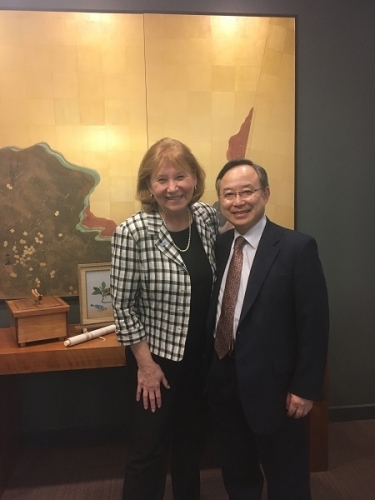 Vancouver Mayor McEnerny-Ogle and me at City Hall |
Before becoming Mayor of Vancouver, Anne McEnerny-Ogle worked for 30 years as a public school math teacher in Oregon and served for 10 years as editor and author for Oregon’s State Math Journal. As she showed me around City Hall, I noticed many gifts on display from Joyo City in Kyoto Prefecture, Vancouver’s sister city in Japan. This year marks the 25th anniversary of their sister city relationship, and the mayor said that she was looking forward to the opportunity to visit Japan (if the coronavirus permits…).
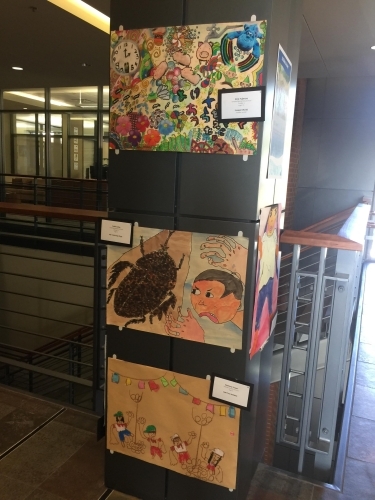 Joyo kids' drawings |
“We are booming right now,” she said, before listing a number of figures and promising economic statistics that brought to my mind her mathematical background. Vancouver is home to many factories and developing industries, and as a result, the daytime population is much larger than the resident population, making it the second largest city in the state during the day. Apparently, many high-tech start-ups have emerged in Vancouver in recent years. Furthermore, the presence of semiconductor giant Intel’s headquarters in Portland has given rise to an ecosystem of semiconductor-related manufacturers in Vancouver, and Japanese companies such as Shin-Etsu and Kyocera have established operations there.
Clark College in Vancouver has strong ties with Kyoto Women’s University and hosts its exchange students each year as the students pursue English studies. The college campus has about 100 cherry blossom trees, and each spring the Sakura Festival attracts many visitors from the community. The mayor said that because of warm temperatures this year, she is worried that the cherry blossoms might bloom much earlier than usual. (Unfortunately, the Sakura Festival joined the many events that were cancelled due to the virus scare…)
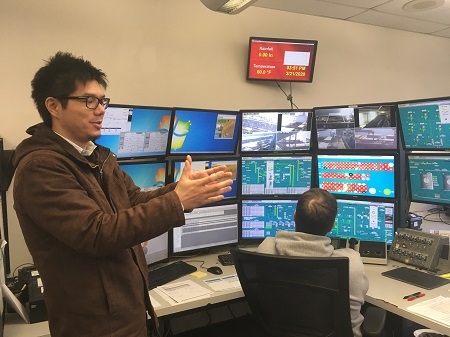 Mr. Yohei Ogawa of United Grain and the United Grain control room |
Vancouver is also well known as an export hub for agricultural crops grown in Washington, Oregon, and Montana. According to the mayor, eleven 110-car trains carrying approximately 350,000 bushels (about 10,000 tons in wheat) of crops such as wheat, corn, and soybeans pass through the port every day. Some grains also arrive by barge along the river. My colleague Consul Ishikawa and I visited the facilities of United Grain, which is owned by Mitsui & Co. According to Vice-President Yoichi Motoyoshi, the company on average fills eight 60,000-ton cargo ships with grain each month, exporting a total of about 6 million tons of grain to Japan and East Asia every year. There are other large American grain export companies with operations on the West Coast, but United Grain’s apparent strength is in its ability to offer services that flexibly respond to its clients’ needs.
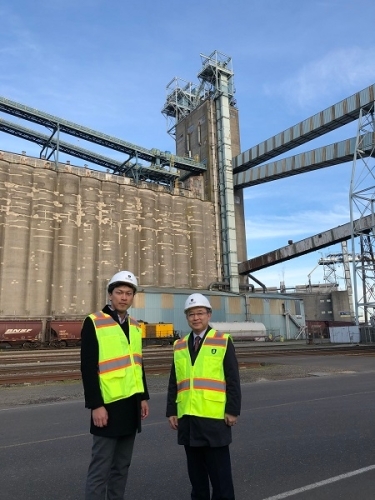 Consul Ishikawa and me at United Grain |
Transporting grain from Vancouver to Japan takes about two weeks. Comparatively, it takes over a month to transport grain from New Orleans via the Panama Canal. You might think that this would give Vancouver-exported grain competitive pricing, however, the very low cost of barge-shipping grain down the Mississippi River to New Orleans means that once the grain reaches Asia, it is sold at comparable prices to Washington-exported grain, resulting in consistent competition. In addition, the recent increase in grain cultivation in South America, along with lower currency rates, has led to an increase in exports from countries like Brazil and Argentina, and forced stiff competition on American grain growers in general.
According to the person that gave us a tour of the wharf, one benefit of grain shipment taking place along the Columbia River has been a fattening of its salmon. Although, I was surprised to see only a small number of sparrows at the port. If I were a sparrow, a grain shipping port would surely seem like a good place to call home.
